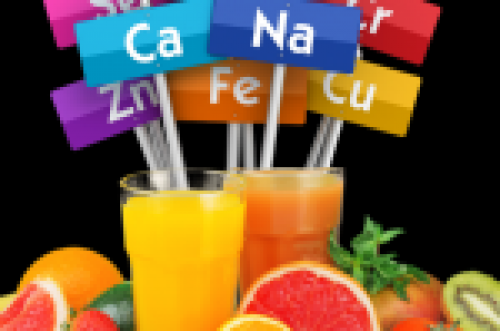Vitamins and Minerals for Successful Detox

Detoxification has become a popular health trend in recent years, with people seeking ways to cleanse their bodies of toxins and promote overall wellness. While various detox programs and methods exist, one critical factor often overlooked is the role of essential vitamins and minerals in the detox process. These micronutrients support our body’s natural detoxification pathways, making them indispensable for a successful detox. Let’s explore why having all the essential vitamins and minerals is crucial for effective detoxification from common everyday toxic exposures, highlighting specific examples and the consequences of nutrient deficiencies.
Essential Vitamins and Minerals:
Building Blocks of Detoxification
Antioxidant Defense
Vitamins such as vitamin C, vitamin E, and beta-carotene, along with minerals like selenium and zinc, act as antioxidants, neutralizing harmful free radicals produced during detoxification processes. These antioxidants protect cells from oxidative damage, which is essential for maintaining overall health and preventing chronic diseases.
Enzyme Activation
Many detoxification enzymes require specific vitamins and minerals as cofactors to function effectively. For example, the cytochrome P450 enzymes involved in phase I detoxification rely on vitamins B2, B3, B6, B12, and minerals like magnesium and zinc for proper activation. Without these nutrients, detoxification pathways may become sluggish, leading to toxin buildup and increased susceptibility to illness.
Methylation Support
Methylation is a crucial biochemical process involved in detoxifying heavy metals, environmental toxins, and hormones. B vitamins such as folate, B6, and B12, along with minerals like magnesium and zinc, are essential cofactors in methylation reactions. Inadequate intake of these nutrients can impair methylation capacity, compromising the body’s ability to eliminate toxins efficiently.
Consequences of Nutrient Deficiencies in Detoxification
Professional Guidance
Working with a qualified healthcare practitioner such as a functional medicine coach or nutritionist can help individuals optimize their nutrient intake and tailor detoxification protocols to their needs. This may involve regular monitoring of nutrient status through blood tests and adjustments to supplementation as needed.
Essential vitamins and minerals are indispensable for successful detoxification, supporting antioxidant defense, enzyme activation, and methylation processes crucial for eliminating toxins from the body. Deficiencies in these nutrients can impair detoxification pathways, compromising overall health and increasing the risk of toxin-related diseases. Therefore, incorporating comprehensive nutrient support into detoxification programs is essential to ensure optimal detoxification outcomes and promote long-term wellness.
References
- García‐Casal, M. N., Peña‐Rosas, J. P., & Malavé, H. G. (2010). Essential nutrients and toxic substances in the diet during pregnancy and lactation. Annals of the New York Academy of Sciences, 1213(1), 1-10. https://doi.org/10.1111/j.1749-6632.2010.05783.x
- Ames, B. N., Elson-Schwab, I., & Silver, E. A. (2002). High-dose vitamin therapy stimulates variant enzymes with decreased coenzyme binding affinity (increased K m): relevance to genetic disease and polymorphisms. The American Journal of Clinical Nutrition, 75(4), 616-658. https://doi.org/10.1093/ajcn/75.4.616
- Carr, A. C., & Maggini, S. (2017). Vitamin C and immune function. Nutrients, 9(11), 1211. https://doi.org/10.3390/nu9111211
- Mandl, J., Szarka, A., & Bánhegyi, G. (2009). Vitamin C: update on physiology and pharmacology. British Journal of Pharmacology, 157(7), 1097-1110. https://doi.org/10.1111/j.1476-5381.2009.00282.x
-
Prasad, A. S. (2014). Zinc is an antioxidant and anti-inflammatory agent: its role in human health. Frontiers in Nutrition, 1, 14. https://doi.org/10.3389/fnut.2014.00014
-
Barbagallo, M., & Dominguez, L. J. (2010). Magnesium and aging. Current Pharmaceutical Design, 16(7), 832-839. https://doi.org/10.2174/138161210790883615
- Rude, R. K., Gruber, H. E. (2004). Magnesium deficiency and osteoporosis: animal and human observations. Journal of Nutritional Biochemistry, 15(12), 710-716. https://doi.org/10.1016/j.jnutbio.2004.08.001
- Jarosz, M., Olbert, M., Wyszogrodzka, G., Młyniec, K., & Librowski, T. (2017). Antioxidant and anti-inflammatory effects of zinc. Zinc-dependent NF-κB signaling. Inflammopharmacology, 25(1), 11-24. https://doi.org/10.1007/s10787-017-0309-4
-
Kennedy, D. O. (2016). B vitamins and the brain: mechanisms, dose and efficacy—a review. Nutrients, 8(2), 68. https://doi.org/10.3390/nu8020068
- Lamers, Y., McMahon, R. J., Morrow, G., & Stacpoole, P. W. (2011). Folate, vitamin B12, and vitamin B6 requirements and recommendations across the lifespan. Public Health Reviews, 32(1), 148-174. https://doi.org/10.1007/BF03391591

Further Reading: Detox
- Successful Detox and Liver Cleanse Tips and Tricks
- Why Integrative Health Practitioners Prioritize Liver Detoxification
- The Transformative Power of Doing a 21-Day Detox Diet
- Liver Cleanse to Avoid Gallstone Pancreatitis
- The Importance of Hydration for Detox Protocols, Lymphatic Flow, and Health
- Vitamins and Minerals for Successful Detox
- Methylation: Importance for Health, Supplements, Symptoms, Genetics, and Best Practices



